Crossroads for Planet of the Humans
by William Rees
[Editor’s Note: The Steady State Herald first published a review of Planet of the Humans on May 1. The following review adds valuable information to the dialog.]
“It stands to reason…”
Who hasn’t heard this expression in everyday conversation? Humans tend to think of themselves as rational beings, and many people sincerely believe they are being reasonable all the time.
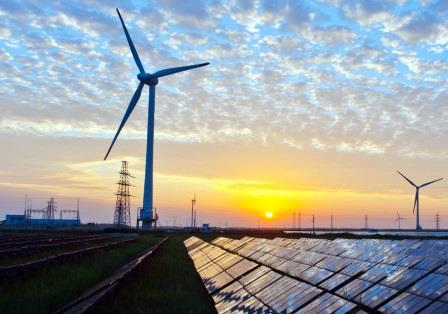
Politicians, corporations, and big environmental NGOs claim that renewable energy can support the economy. Really? At what level and at what cost? (Image: CC0, Credit: Kenueone)
However, human reason invariably operates in a straitjacket. Even the most elevated of human thought is constrained by life experience and the unquantifiable set of beliefs and values, as well as facts and assumptions, that every individual acquires by growing up in a particular cultural environment. Life experience determines a person’s perception of reality. Unsurprisingly, people are most comfortable when the universe unfolds in harmony with their culturally preset notion of how things ought to be.
Of course, in complex societies there are many potential versions of “truth” on any particular subject. “Reality”—or rather, our socially-constructed perception of reality—comes in many guises.
Herein lies potential chaos. It starts when a line of thought taken for granted by a group of people who share the same cultural narrative is disputed by another group who observe a different set of beliefs, values, and assumptions.
Consider the dilemma of modernity. Propelled by fossil fuels, our increasingly global techno-industrial (mainly capitalist) society has generated unprecedented material prosperity for hundreds of millions of people. This extraordinary progress leads us to believe an endless energy bounty will support the ten billion humans expected on the planet by mid- to late century. The catch is that this same success is already well on the way to depleting and polluting the seas, denuding the continents of forests, displacing the world’s wildlife, and triggering climate change.

Michael Moore and Jeff Gibbs challenge the notion of “green growth.” (Image: CC BY-SA 2.0, Nicolas Genin)
This is not a problem according to the cultural mainstream. Radiating self-confidence and buoyed by unquestioned past material success, the political and corporate leadership seem confident that human ingenuity (our greatest resource) will prevail. They argue that we have already found economically viable renewable substitutes for fossil fuels such as biomass, wind turbines, and solar photo-voltaic arrays. These alternatives should enable economic growth to continue indefinitely, bringing the affluence needed to “fix” the ecosphere. The big environmental NGOs have climbed on board for pushing the techno-fix narrative, and most citizens are only too happy to go along for the business-as-usual ride.
Not everyone is jumping on the pro-growth bandwagon, however. A surge of scientists and citizens has written a competing narrative. This renegade group reasons that wind and solar technologies are quantitatively insufficient to power modern society, contribute to ecological destruction, and are heavily subsidized by fossil fuels and not really renewable. To them, the only reasonable “solution” to the ongoing climate and eco-catastrophe, difficult as it may be to achieve, is adapting to much lower levels of energy and material consumption, sharing existing income/wealth, and learning to live within the biophysical means of nature.
This new movement has been growing steadily and waiting to catch fire politically. While there has been a deepening discussion about the impacts of the economy on the environment, there has also been a significant lack of media coverage about it. That was, however, until a few weeks ago, when one documentary ignited the argument against economic growth: Planet of the Humans.
The Gibbs/Moore production has ignited a conflagration of competing worldviews unparalleled by any debate about alternative energy sources in the history of the environmental movement. As a human ecologist, I’ll admit up front that I am in the renegade camp, but I am not blinded to certain weaknesses in Gibbs’ take on our dilemma. This film contains many pros and cons when framing the conversation of environmental protection. Let’s explore what Planet provided.
The Underbelly of Environmental Organizations
Planet of the Humans does a great service in eroding faith in renewable energy, particularly the travesty of broad-scale biomass energy. It achieved less than it could in undermining wind and solar power. This is a shame since the loudest screams of “foul” come from wind/solar advocates, and there are plenty of recent analyses and data which the film could have drawn on to cut them off. It’s an ironic weakness, because the films critics are most adamant about how “dated” the wind/solar information is. Yes, it’s dated, but on both sides of the argument about whether wind/solar is capable of replacing fossil fuels at the current size of economy.
The film also succeeds in skewering several environmental organizations and popular heroes in the process. Though it’s difficult to watch the hypocrisy of environmental champions unveiled, investigating into these advocacy groups is important and necessary. For instance, Gibbs reveals the large and mainstream environmental organizations are highly dependent on the corporate sector for their financing, either directly or indirectly. This certainly compromises what they can say about the (corporate) values of society and helps to explain why so many environmental NGOs support capital-intensive (i.e., profit-oriented) approaches to energy supply and climate change—e.g., electric cars, solar photovoltaics, wind turbines, carbon capture and storage, etc. These organizations make us think they are saving the planet by introducing “green” tech; yet they are supporting—and enjoying the support of—the corporate giants that contribute to destroying the earth. Even the Green New Deal is a false-promise approach that suggests all we have to do is invest in techno-fixes to continue on our growth-bound path.
A Better Refute Against Renewables Replacing Fossil Fuels
As noted above, up-to-date data are important, and accurate data even more so. Planet of the Humans relies excessively on old research and off-the-cuff comments from interviewees. Gibbs/Moore could have better supported their case by referencing current issues with “green” technology, including extended net energy analysis from mine-shaft through operation, as well as the decommissioning of commercial wind turbine and solar installations.
However, Gibbs does bring a critical question to light: Are renewables effectively displacing fossil fuels?
Let’s look first at the case of Germany, a leader in green energy investment. According to Clean Energy Wire, while wind and solar make a significant contribution to German electricity production (21 percent and 8 percent respectively) these two sources supply a mere 5 percent of German primary energy consumption (3.5 percent and 1.5 percent, respectively). Biomass—largely green trees as Gibbs pointed out—supplies a full 7.6 percent. Meanwhile, fossil fuels still account for about 78 percent of primary consumption, and carbon emissions have been more or less plateaued for a decade. (Yes, carbon emissions did drop in Germany in 2019, by about 6 percent, but 2019 also marked a sharp slump in German GDP growth, especially in the industrial sector). All this despite hundreds of billions invested in wind and solar energy. Furthermore, keep in mind that wind and solar require full backup power, either domestic or imported. (Note this well: It is a common error to conflate electricity generated with total energy demand/consumption. The former is typically only about 20 percent of the latter.)
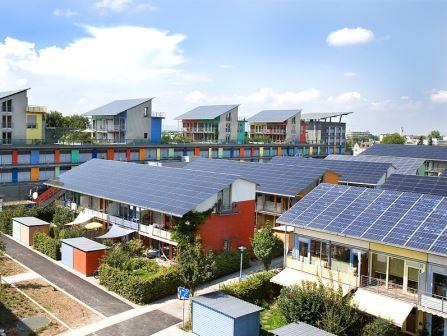
Germany: Powered by renewables? (Image: CC BY-SA 3.0, Andrew Glaser)
Then there’s the global picture to consider. According to BP Statistical Review of World Energy 2019, in 2018, fossil fuels supplied 11,743.6 Mtoe (million tonnes of oil equivalent) or 85 percent of the world’s primary energy, while non-hydro renewables (mostly commercial biomass, wind, and solar) contributed only 561.3 Mtoe (4 percent).
Are renewables catching up? While the contribution of non-hydro renewables to global primary consumption has expanded by 437 Mtoe since 2008 (16 percent per year), consumption of fossil fuels increased by about 1,750 Mtoe (about 1.5 percent/yr) in the same period. This marginal increase is over three times the total supplied by non-hydro renewables in 2018. This same year, consumption of non-hydro renewables increased by 71.1 Mtoe (14.5 percent), but fossil fuels were up by 276.3 Mtoe (2.4 percent).
Bottom line? Starting from a much larger base, the pre-pandemic annual absolute growth in fossil fuel production/consumption continues to outpace that of renewables, especially non-hydro-renewables, by a wide margin, despite the higher relative growth rate of renewables. Nothing suggests this will change while economic growth remains the goal, especially since new technology requires economic growth based on current levels of technology.
Bountiful Energy Could Do More Harm Than Good
Gibbs underplays (and the subsequent criticism I have seen entirely misses) a critical point: Even if renewables were “the answer”—i.e., even if our techno-industrial, capitalist growth succeeds in contriving any cheap, plentiful substitute for fossil fuels—it would be catastrophic. Without a sea change in expansionist values and our anthropocentric approach to the natural world, humans will simply use the energy bounty to complete their dismemberment of Earth. (Planet’s horrific sequences of stranded orangutans—their habitats destroyed for palm oil and sugar cane for “green energy”—is perhaps the most illustrative example of this potential destruction.)
In short, it’s really beside the point whether “100 percent renewable energy” is possible because any techno-fix would be disastrous given the prevailing cultural narrative and macroeconomic goals.
The Bottom Line
Planet of the Humans is far from inaccurate in undermining today’s overconfidence in renewables and mainstream environmental NGOs but is arguably a bit unfair to some individuals. Gibbs engages people on both sides of a complicated issue, selectively goring some. Wherever one stands on the issue of sustainable energy, though, Planet of the Humans is proving to be a deeply moving and motivating production.
And now there is a complicating—but possibly complementary—factor. The COVID-19 pandemic provides an unscheduled opportunity to rethink our energy and economic futures. The real planet of humans is at a crossroads: Pre-pandemic trends will not simply resume as if nothing had happened.
Homo sapiens is an allegedly rational species. Virtually everyone agrees that we must avoid an ecosystem collapse and reverse global warming. We also recognize that if civilization is to persist, we must have energy sources. So, what is the solution that balances these two issues?
CASSE’s push for the steady state economy is certainly one of the most rational answers to that question. It really ”stands to reason” that we need an economy that fits on the planet, using a reasonable amount of energy from renewable sources and with processes that don’t destroy our ecosystems. Reducing energy use to that reasonable amount surely entails real (not just political) degrowth. “Degrowth toward a steady state economy” summarizes the solution quite well.
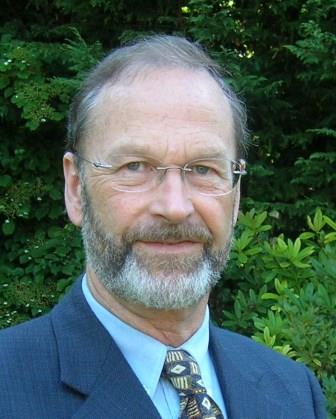
William Rees is a human ecologist, ecological economist, Professor Emeritus, and former director of the University of British Columbia’s School of Community and Regional Planning, best known for ecological footprint analysis.

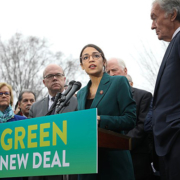


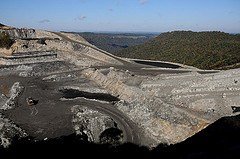
There are specious notions floating around the internet that steady staters are somehow “against” renewables when they acknowledge the merits of Planet of the Humans. Nothing could be further from the truth.
I gave a positive review of Planet, yet just last night I was on a webinar hosted by the Mid-Atlantic Renewable Energy Association describing why CASSE and MAREA are natural allies. Along with a steady state economy, renewable energy is an obvious prerequisite for sustainability. I’ll be saying the same on a Growthbusters webinar today.
What CASSE opposes is not renewable energy per se, but rather the “green growth” fantasy of Big Green Energy which Planet documented in spades. Planet also exposed the “green growth” buy-in of the big environmental NGOs, who have been a huge barrier in advancing the steady state economy.
So, let’s get the record straight here. Neither anyone at CASSE nor steady staters at large are “against” renewable energy. We’re all for it at some level of GDP. Just don’t try to tell us it can fuel an $88-trillion economy without trashing the planet, just as the $88-trillion economy fossil-fueled economy is trashing the planet (with or without climate change). Bill’s article helps to dispense of such notions. What we need more than anything is the paradigm shift from GDP growth → Degrowth Toward a Steady State Economy. Renewables must be part of that shift, not part of a “green growth” con job.
Hear! Hear!
Well-written piece by Bill Rees.
Well said. May I add that there is no new “green energy” technology out there that can provide the “ready to go” energy density that a hydro-carbon fuel can. I’d say when it comes to energy production hydro-carbon fuels are quite the elixar if it were not for the faustian bargin that comes with them (namely CO2 pollution.) That is why it is the dominant energy source around the world. For green energy technologies to become truly practical, energy production by way of green technologies must be complimented by large reductions of energy use in general as well as energy use at a specific moment.
I further add that hyro-carbon fuel use will never be completely eliminated. It is just too essential where high concentrations of power are required. The trick to bring our environmental problems under control is to bring our hydro-carbon fuel use down to a level where the byproducts can be reabsorbed into the eco-system (i.e. by forests into the ground) so as to stabilize the byproducts in the air and water which give rise to climate change and other environmental destruction. Thus one comes to the importance of afforestation. The more forests in the world the more hydro-carbon fuel may then be burned.
I have published my owncomparatively homespun defence of ‘Planet’ on my weblog (16/5/20).
May I stress that what is necessary is impossible until all individuals can contemplate security. The neoliberals cannot be stoppped in their plans for a latter day version of feudalism, but it will have to be sustainable
If a basic income is a part of this it need not be a ghastly accident, and unlike all previous post growth crises, anyone, whatever their start in life, can achieve whatever their abilities merit.
http://www.clivelord.wordpress.com
When Bill Rees talks, people listen. Thanks to Rees for this well-considered piece, and to CASSE for sharing it. Very excited that CASSE’s Brian Czech and I just finished recording a part 2 of the Webinar I hosted, Planet of the Humans: a Sequel – What did the film Get Right? And What Should We Do About It? That webinar can be seen here: https://youtu.be/gy25BVqrUTs And I know Brian will share a link to part 2 when it’s published next week. You can also listen to the podcast versions of these on the GrowthBusters podcast. But back to Rees: What HE wrote. Pay attention.
Even if a steady state economy could be instigated it won’t remain steady if the world population continues to rise and continues to maintain a steady standard of living.
A more sane society in which no one would be bothered about anyone’s consumption or pollution would be possible if the world’s population could be reduced to, what, 1 billion.
If anyone asks ‘yeah but how can that be done?’ must agree that it would be a solution as why waste time to ask that question. So better to think of user friendly ways of achieving that. There are recent examples.
By way of introduction, I have researched renewable energy for over 40 years. In the 1990s, I was also convenor of the Ecological Economics Roundtable in Canberra, Australia, which was the forerunner of the Australia New Zealand Society for Ecological Economics. Subsequently, I served as president of ANZSEE.
I am deeply saddened by the misleading material about renewable energy being parroted uncritically, from the film ‘Planet of the Humans’ and other fossil fuel and nuclear propaganda, by Bill Rees and previously by Brian Czech. The truth is that renewable energy – primarily wind and solar, supplemented by hydro – could power either a high-energy economy similar to the pre-Covid-19 one or a steady state economy with low throughput. This result doesn’t originate from the ‘intellectual laziness of “green energy” groupies’, as Czech claims, but from peer-reviewed papers by expert researchers on renewable energy and electric power systems from around the world, including Mark Jacobson at Stanford University, Dimitrii Bogdanov and Christian Breyer at Lappeenranta University, Henrik Lund at Aalborg University, Andrew Blakers at the Australian National University and our own research group at UNSW Sydney.
Of course, 100% renewables could be reached more rapidly in an economy with lower throughput. I prefer, and campaign for, a transition to an SSE. But to misrepresent the potential and current status of renewable energy does not help the SSE movement. It does help the fossil fuel and nuclear industries.
Agreed Mark. As someone also from the industry (and who had never heard of CASSE), it is even sadder to see intelligent people defend this film (to any degree). The very valid points that should be front and centre in this film to educate the public, that the filmmakers have since been trying to spin is the primary message and everyone here seems to agree on, being that renewables are not perfect either (they’re just a lot “less bad”), that they alone will not be sufficient and shouldn’t be used to validate unsustainable growth, for most are at best distant afterthoughts relative to the smearing of the tech itself with outright lies (Mr. Zehner’s statement about emissions being worse than burning FF is one of the more idiotic things I’ve heard in awhile) and dumb conclusions (e.g., if you plug an EV into a grid with high FF, it doesn’t mean the EV is useless, it means you also need to clean up your grid). For the crime of having once thought that biomass was a good idea, their smearing of Mr. McKibben is despicable, on par with right-wing trash media, particularly given what has come to light since (Mr. Gibbs claims that he never heard from him prior to release, and that he got what he deserved because he failed to demand that all existing biomass be dismantled).
No, you have to pick through the rot in this film to get to these good points, and the problem is that I don’t think that most of the willing population is capable of that, let alone the deniers/FF promoters that love it. This could have been a needed takedown of capitalist greenwashing, clarification on the limits of RE, expansion on what else we need to do, etc. Everyone here and on other progressive media sites gets it, but now a lot more of the general population just think that RE is a “con job” that emits more GG than FF, and that’s what we in the industry are crying “foul” about.
The thing I find disturbing in all of the debates about this thought-provoking film is that the left leaning REnergy advocates somehow feel extraordinarily betrayed by this movie and their former hero Moore. Their personal attacks and hyperbole on those who dare to question the whole premise of “Green energy” such as in your article using inflammatory rhetoric only proves your insecurity in this debate. Can scientists and ordinary citizens such as myself not question some of the issues raised in the movie without being personally attacked? After all it is our planet too. Stating your degree of experience and expertise on the matter does not help, in fact it leads one to believe you may be so entrenched in your ideas, perhaps staking your professional and personal reputation on your position, that to now admit you and your colleagues may be wrong in some ways may make any kinds of thoughtful discourse on the matter extremely difficult.
One more thing Mr. Eberhard. While it may not be a “crime of having once thought the biomass was a good idea” at least not legally, it is a moral crime for the RE advocates not to denounce this destructive RE industry once they have discovered that in practice it is having precisely the opposite effect on the planet than the one for which it was so widely touted.
It is not clear to me exactly what point Bill Rees is trying to make. That renewable energy does not solve the myriad of sustainability challenges that the world faces? That cheaper energy will result in more energy being used? That renewable energy machines use finite non-renewable resources? All of that is well known but a SSE in itself will merely reduce the quantity of energy generation required. Whatever economy we have in the future will require energy. So what does Rees think we should do? Abandon the further development of renewables? Replaced with what?
As an engineer developing renewable energy projects I am dealing with the here and now and the priority is reducing emissions, and this needs to happen rapidly – zero emissions by 2050. If we don’t do that the economy will not be SS, it will be in steep decline and human wellbeing will go with it, particularly in the developing world. Whether certain individuals are honest or dishonest about renewables is totally irrelevant. We can, indeed must, simultaneously work towards a renewable energy future while promoting a SSE through a (more) circular economy, population stabilisation and prevention of further biodiversity loss.
I think that is his point – that switching to renewable energy alone will not get us out of hot water. It won’t even solve the climate crisis if we don’t all simultaneously end the love affair with growth – and CONTRACT both the economy and population for awhile before we stabilize anything.
Exactly so, Dave. Thank you for actually reading my article!
Why are we ignoring the planet’s ecology and learning how nature has already solved this problem. The two most highly productive ecosystems on the planet (rainforests on land and coral reefs in the sea) are not only the most diverse, they are essentially steady-state, non-growth systems.
Mark Diesendorf is “deeply saddened by the misleading material about renewable energy being parroted uncritically… by Bill Rees and previously by Brian Czech. He argues: “The truth is that renewable energy – primarily wind and solar, supplemented by hydro – could power either a high-energy economy similar to the pre-Covid-19 one or a steady state economy with low throughput.”
Pay attention, Mark. I conclude my piece by arguing “it ‘stands to reason’ that we need an economy that fits on the planet, using a reasonable amount of energy from renewable sources and with processes that don’t destroy our ecosystems (emphasis added).”
Is this an unreasonable proposition?
So, what exactly is Mark’s problem? Seems our only real point of disagreement is whether RE, particularly wind and solar, can—or should be allowed to—expand approximately 50-fold to power our present unsustainable Earth-destroying level of economic activity. I don’t think it can and, if it could, it would be disastrous.
Bill, it isn’t my problem, it’s a serious problem faced by CASSE and the whole movement for an SSE, when some of their leaders endorse the contents of a film that’s grossly misleading about the current status and potential of renewable energy, unfairly smears individuals of integrity and environmental organisations, and then gives pathetically weak support for an SSE, without even mentioning the term. Any idiot can point out that infinite growth on a finite planet is impossible.
Bill claims he supports “ a reasonable amount of energy from renewable sources”, but seems to define “reasonable” as a niche market, as shown by his sweeping statement elsewhere in his article that “Planet of the Humans does a great service in eroding faith in renewable energy… It achieved less than it could in undermining wind and solar power.“ (I’ve elided the phrase about bioenergy which is a minor side-issue, because bioenergy will never play a significant role.)
The title of his section, ‘A better refute against renewables replacing fossil fuels’, reinforces the understanding that he rejects renewables playing a major role. Incidentally, his arguments in this section, which are disseminated by the fossil fuel and nuclear industries, have been refuted time and again.
Renewables can replace fossil fuels. They are already well on the way to doing so in a few countries and states, and in many towns, industries, businesses and homes. So get used to it and design your strategy for an SSE accordingly!
I’ve viewed the film, read Brian’s review and McKibben’s response and Heinberg’s response. IMO the film is a bad mix of old data, inattention to the big picture, and a bad attitude…with a fairly inchoate wail about the growth problem(s). I wish it were more balanced, logical, and quantitative….before delivering the valid message that growth as usual is nuts and impossible.
Yes, McKibben and many others lapped up biomass initially (note Burlington’s famous wood-burning electric plant). Later they got how it is almost always a bad deal, and said so….let’s move on.
Solar/wind do return net positive energy….today, not 15 years ago. How much is a continuing issue. Yes, today fossil energy builds wind and solar, but that may be a transitional problem; we hope that solar can breed solar eventually. Numbers?
Yes, capitalists see the “climate economy” as their next bonanza. Yes, the Sierra Club seems to have literally sold out, and almost all ngos are breathing easy that they now can bless electric cars and check off the cred box. (The film does well here.)
My approach would be to give the tech fix arguments their quantitative due but subject them to real world constraints of timing, efficiency and overall size (these not to be confused!). IMO this would show that hard-core growth can’t/should not happen even granting that some of the tech fixes can work.
Gotta say: its important to have a life worth living and to pass a legacy on to others before passing the mortal coil.
But none of that can occur without securing physical survival today.
If the house is on fire I’m going to focus on putting it out — not about how insurance is a useless scam, that housing is not the only or primary human need, and any house will eventually crumble to dust any way etc we’re all going to die anyway etc etc
Denying climate solutions is fully as destructive as denying the climate problem. this is the new denialism, fully as destructive as the old.
It’s as irresponsible as blocking and criticizing the fire brigade that is trying to put out the flames.
Yes there are other problems, but dammit, first things first. And solar is at least a major part of the solution for our most pressing existential problem.
In 1972 the Club of Rome (I was 29) showed the scenarios ahead which would unfold depending on actions we took or didn’t take. Considering the technology available they have them out to be surprisingly accurate. I built Nuclear Power plants for a living but I no longer believe that technology or any other technology can or will save us. We are on the eve of destruction. This is a one, possibly two billion planet and nothing will change that. An inconvenient truth for the growthers from Wall Street to the Pope, too bad. We need to figure out how to reduce our footprint on the planet to have any quality of life for ourselves and the other creatures left. Glad I lived when I did; glad I didn’t reproduce. We are not rational animals, we are rationalizing animals who believe in stories.
I almost hesitate to respond amidst this flurry of comments to add my own. First, William Rees for me nails it. He doesn’t deny the need for renewables and sources of non-fossil fuels. Read what he writes carefully. What I find very interesting, though, is this lack of historical perspective. Capitalism did not create the wealth we enjoy today…we did with human ingenuity and the advent of the discovery of fossil matter that fueled the industrial revolution in recent times. What we don’t seem to get and it takes a non-economist such as myself to point out is that our capitalistic growth mandated system is a political invention first and foremost. If we want to truly address the population problem( I won’t say over-population problem) then we need to address how we are to organize ourselves to provision ourselves with justice for all. We are not doing this very at the moment if you notice. Technology, no matter how clever cannot solve our deepest human problems. And, yes…we are story telling beings which means we need to come up new stories to live better and within the real physical limits of our precious little planet.
Lots of easy fossil fuel energy leads to too many people…. leading to deforestation… leading to exposure to viruses.
Lots of easy fossil fuel energy leads to too many people…. leading to densely packed cities and extensive global travel… leading to global pandemic.
Lots of easy fossil fuel energy leads to too many people…. leading to massive unemployment when pandemic arrives… leading to desperate people… leading to a desperate man cashing bad cheques… leading to a deadly confrontation with police.
Lots of easy fossil fuel energy leads to too many people…. leading to a stressed out populace who hate each other… leading to civil unrest.
Are there any common root causes here? We’re supposed to be a clever species…. just too many rats in big cage.
Mr Rees, you once again, put it precisely and clearly: we live on a planet with finite energy resources and other resources. To expect that renewable and non-fossil sources of energy can be developed and then indefinitely expanded is denying real limitations. Again, the point I need to emphasize is that the problem of over consumption is not really a population problem. Increases in population is made possible by the availability of usable or exploitable sources of energy. To say that we need to limit energy consumption to control population growth or to say that we need to limit population growth to limit consumption is reasoning in a useless circle. We know we need to limit both; but our current economy and cultural ethos globally does not allow this. Lack of population of growth would mean lack of consumption which is the very basis of our economic-financial system and would disrupt the system…hence one major form of resistance to change. A steady state system describes the kind of economy we need; but we need to transition to that by building local economies based on provisioning within ecological limits and most importantly that focus on the real needs of people so that all are provided for decently as human beings. We need not be slaves to our current economic/political system. Focusing on the technical, while very important and a must, is not, in my view, the core issue.
As an Australian, not caught up the USA political scene. It seems that much of the heat and confusion over the film “Planet”comes from a heart sickness, a rebellion against corporate spin and the poor state of political debate on climate and ecological collapse. .The impression Brian’s initial article on “Planet ” gave was one of Glee, This review seemed to revel in the portrayal of RE as some kind of scam, which it is definitely not.. Yes, one can be weary of short sighted corporate spin, as large businesses promote their products and claim to solve all our problems, as regards the climate and ecological crisis. But Brian praise of this film, was as if it was a triumph, an expose of great moment. Naturally this created dismay among a number of SSE supporters. The films inaccuracies & false take on RE was largely, ignored, and the view expressed was “the scam was exposed”. Similarly I am an admirer of Bill Rees work, however I think he is not as fully conversant with the current RE developments and recent detailed work on the EROI figures on RE installations. I am aware of the polite and respectful exchanges between him and other earnest men, each with decades of work in their respective areas, on this topic.. It still seems clear that it is a both reasonable and sane and a valuable choice, to reduce GHG emissions. Hence RE must be part of a transition to a SSE. To my mind the Green new deal, is inadequate and is still growth oriented.. It also appears that some conservation groups have succumbed to corporate spin and lost their way. But nothing changes the facts (apologies to Bill Rees) but RE plus EE and EC, in the context of a transition toward a SSE , clearly is a positive scenario and a highly desirable one. I believe Mark Diesendorf’s detailed understanding of the facts in this area. But to strengthen the hand of far right Laissez Faire policy advocates, to argue (effectively) that RE is fake does not advance the move to a SSE, which we all desire.
Bill’s claim that “wind and solar require full back-up power” has been refuted by a decade of simulation modelling studies and growing practical experience with electricity systems with high penetrations of renewable energy generation into the grid. Although an electricity system in which wind and solar supply the majority of annual electricity does require some additional storage/reserve plant, generation reliability can be achieved when the latter’s power capacity is in general much less than that of the wind plus solar plant.
Furthermore, this storage or reserve plant does not operate continuously and does not have to be provided by fossil fuels. Its roles can be provided with combination of some of the following technologies and measures: batteries; conventional ‘once-through’ hydro; pumped hydro (off-river as well as on-river); compressed air; concentrated solar thermal with thermal storage (in regions with ample direct sunlight); gas turbines whose fuel is made with renewable electricity; new and/or upgraded transmission lines; and demand response. All these technologies and measures are commercially available.
Further reading: Diesendorf & Elliston 2018. Renewable & Sustainable Energy Reviews 93:318-330; Diesendorf & Wiedmann 2020. Ecological Economics (in press).
Bill Rees claims that he will provide “a better refute against renewables replacing fossil fuels”. However, his attempt to use Germany to support his claim fails, because in Europe’s leading industrial nation in 2019, renewables generated 46% of public electricity, with wind and solar together generating 34% and increasing. For comparison, fossil fuels generated 40% and nuclear 14%, both declining. https://www.ise.fraunhofer.de/en/press-media/news/2019/Public-net-electricity-generation-in-germany-2019.html.
In the first five months of 2020, renewables generated 56% of Germany’s public electricity, with wind and solar together generating 43%. Fossil fuels generated only 30% and nuclear 12%, see https://reneweconomy.com.au/graph-of-the-day-germany-reaches-56-renewables-for-2020-2020/. Thus renewables have overtaken fossil fuels for electricity generation in Germany and their share of generation continues to grow.
Bill obscures this success story by quoting renewables as a percentage of primary energy, but this doesn’t take account of the fact that one unit of renewable electricity (or energy efficiency) substitutes for about three units of primary energy combusted by fossil fuels to generate electricity.
The ongoing transition from fossil fuels to renewable energy is based on transforming electricity and then electrifying non-electrical heating and most transportation. Like the replacement of electricity generation by fuel combustion, heat pumps and electric vehicles (EVs) offer huge gains in energy conversion efficiency. Within several years, EVs will be generally competitive with fossil fuelled vehicles and we shall see a rapid transformation of vehicle sales to electric, with large reductions in emissions, both greenhouse gases and local air pollution. Already, EVs dominate new car sales in Norway.
What percentage of Germany’s renewable electricity (as you’re only giving us that) was provided by biomass? I ask because RE advocates always choose very carefully the stats they share. I get that. I worked in the spin industry for over 30 years.
And, that’s a nice long list of all the things we have to get just right for this rosy picture to unfold. We love renewable energy. Just don’t try to convince us that it’s magic pudding.
While the criticism that Moore’s information was a bit outdated may be true, the fact remains as the film pointed out, that there are too many of us consuming too much. Coupled with capitalism that is a deadly combination. The film also pointed out that Global Warming is a minor problem compared to the totality of the other problems caused by overpopulation. As many have pointed out, we are not against renewables, but rather maintaining our opulent lifestyles. It amazes me that our collective intelligence prefers to wear blinders and be in denial of hard facts.
The clash between the beliefs has been a standoff, because each side is in denial of the other without giving reasons for why the belief is flawed One side says that innovation will remove limits to growth, because it has happened before. They dismiss worries about infinite growth being impossible on a finite planet, because they don’t think we will remain limited to a finite planet. Ways will be found to expand beyond the planet, is their belief. Those promoting limits don’t believe this, but don’t go further. It has been a deadlock of denial on both sides.
However, there is a problem with the belief that we can always find what we need to grow because we did it in the past. That belief involves false logic. There is no observable relationship between what was found in the past and what might be found in the future. What people are expecting to find only exists in their imagination. Looking for imaginary things does not cause you to find them. This can be experimented with. Imagine something that has never been found. A unicorn, for example. Imagine that it exists somewhere. Go and look there. Expand your search if you want, hire people well trained in the scientific method to look. Will any of that make any difference to the search if unicorns don’t actually exist anywhere but the imagination? The expectation of finding imaginary things is based on a correlation, it is not based on a cause and effect mechanism. And this confusion between correlation and causation is why people have felt it was ok to destroy and damage things that have sustained us reliably in the past. It didn’t matter that we were using things up because we would find more.
You can’t say that things needed won’t be found, but reason says it isn’t a good idea to bet your society on things before they have been found.
This can break the denial deadlock. The question remains- do the people arguing for limits, actually want to break the deadlock?
No one seems to have noticed my part of the answer to Arthur Noll’s dilemma. or indeed the entire ‘is purely RE growth feasible’ debate (posted in May)
A basic income, or some way of guaranteeing basic needs in a SSE, will enable a rational debate between latter day Buddhism and high tech whizkiddery. Without it (or something such) these interminable stand offs will continue, but only until eco-meltdown. It would also be an alternative to a latter day feudal system
http://www.clivelord.wordpress.com
A major problem I see with a basic income for all, is that it assumes all can be supported at a basic level in a long term sustainable way. But right now, billions depend on fossil fuel to make and mostly run a huge network of machinery to feed, clothe, house, medical care, sewage systems. People are entertained and birth control is provided with this industrial network as well. Mining, refining, manufacturing, transporting, often long distances, of large amounts of materials and products is done with this industry. Renewable energy devices, built, installed, maintained, largely with with fossil fuel, are not going to do this on a sustainable basis. It needs to be renewable energy systems that can be used to rebuild themselves as well as run everything else. There are serious technical problems in the way of doing this, and we are back to the problem of relying on finding imaginary things again.
If you look at what the population was before fossil fuels started to be used in big ways with the industrial revolution, it is estimated to be around a billion. And there were sustainability problems with that level of population as well, which is a reason people started using fossil fuel. Forests couldn’t keep up with the demands for fuel, building material, and cleared land for growing food. Soil erosion was a problem. The population was still big enough and well connected enough to have epidemics. Famines and wars were also common. A growing population of different cultural groups means all want more resources, and trade helps them grow for awhile, but it isn’t enough to keep growing, and conflicts are inevitable. War, famines, epidemics, all controlled population.
To have a long term sustainable population without such harsh controls, requires all groups to agree to limit their population and use per capita to stay within boundaries. That isn’t even on the table for discussion at present. We need to deal with reality.
Nice post. I was checking continuously this blog and I am impressed!
Very helpful information specifically the last part :) I care for such
info much. I was seeking this particular info for a very long
time. Thank you and good luck.